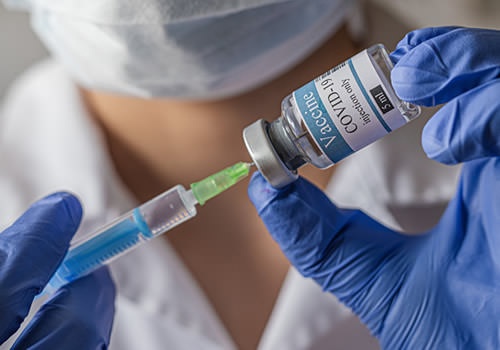What’s behind the reluctance to take the Covid-19 vaccine? Anti-vaccination sentiment is nothing new. There are many reasons, including fringe conspiracies. The surrealness of our lives in 2020, a lack of hard information, skepticism and social media all gave rise to waves of conspiracies.
One such conspiracy claims the vaccine contains microchips designed to alter our DNA and track our whereabouts. It even implicated Bill Gates in the narrative. But conspiracists and Covid-deniers are a small minority, as are ardent anti-vaxxers such as those who believe childhood vaccinations cause autism.
But now there’s a new group, who are neither conspiracists nor anti-vaxxers. To some, it’s a paradox that this group includes healthcare workers.
Anti-Covid-19 vaxxers
“I’m not an anti-vaxxer, but…”
The new group is anti-Covid-19 vaxxers.
Reasons for Reluctance
It feels scary to inject an unknown substance into our bodies. Proponents are saying it’s safe now, but it’s understandable to worry about what’s as yet unknown.
Fear of adverse effects
Some are not sure how the vaccine may affect their future fertility. Some say they do not want to be guinea pigs but might feel more comfortable in a few months after watching others and with real-world proof. Some believe the vaccine could cause future disease. It’s important for reporting agencies to be transparent about side effects.
Misinformation
One fear, that of being injected with the virus, is based on the understanding that most vaccines contain a version of the same germ or virus that causes the disease. But messenger RNA is not a germ or virus. mRNA teaches our cells to produce an immune response (antibodies).
Lack of information
Some who have been infected already believe it’s not needed because they have antibody protection. It’s not yet known how long antibody protection lasts. Can you be infected more than once? Cases have been recorded.
Novelty and rapid research and development
Since vaccines typically take years, even decades, to develop, many are concerned at how fast the vaccines were rolled out and do not trust the accelerated process. Was safety compromised? Scientists say no. Researchers leveraged previous vaccine research and had newer technology as well as a lack of financial barriers.
Cultural mistrust of healthcare authorities
Mistrust in Latino and Black communities exists due to historic medical racism. Black males were lied to in the Tuskegee Syphilis Study for over 40 yrs, going back to 1932.
According to a Pew Research Report here's the breakdown by race of who would definitely or probably get vaccinated:
-
83% English-speaking Asian Americans
-
63% of Hispanic
-
61% of White adults.
-
42% of Black Americans
The numbers speak volumes.
Herd immunity: What is it?
Herd immunity is when a large percent of a population becomes immune to a disease, reducing the chance of person-to-person transmission by reducing the available hosts.
The more contagious a disease is, the more people in the community need immunity. Measles is one of the most contagious diseases, and according to the Mayo Clinic, 94% of the population must be immune, which is the threshold for measles. Polio, smallpox and diphtheria have been contained by herd immunity.
Originally the WHO said 60-70% but Dr. Anthony Fauci, head of the National Institute for Allergy and Infectious Diseases, has recently said herd immunity could take up to 85% vaccine coverage
If entire communities of people refuse the vaccine then theoretically they are susceptible to the disease spreading quickly. It could predict future hotspots of an outbreak.
However, it has not been proven that the vaccine prevents transmission. It’s possible that immunized people can catch the virus, not become sick, but still pass it on to others.

Nurse Responsibility
What is important is that we as clinicians stay informed on the latest vaccine data. Our words and actions carry weight with others. Be a source of credible information, and articulate your point of view.
I am receiving my second dose in days, and it’s a personal risk/benefit decision. I am over 65, work in a hospital, and there’s a good chance I could get very, very sick if infected.
Be Safe
Finally, be safe. I can’t recall the source, but somewhere in Europe, maybe France, a leader said “pretend you have the virus and act accordingly” If everyone did that, we could reduce transmission by distancing and masking.
Are you planning to get vaccinated and why or why not?
Best wishes and stay healthy,
Nurse Beth
Author, "First-Year Nurse", the ultimate insider's guide to helping new nurses succeed while avoiding first-year pitfalls.
References
Herd immunity and COVID-19 (coronavirus): What you need to know. nd. Mayoclinic.org Retrieved January 10 2021.
Funk, Cary. Tyson, Alec. 2020. Intent to Get a COVID-19 Vaccine Rises to 60% as Confidence in Research and Development Process Increases. Pewresearch.org Retrieved January 10, 2021.
McNeil Jr., Donald. How Much Herd Immunity Is Enough? 2020. nytimes.org. Retrieved January 10, 2021.
The Tuskegee Timeline. Reviewed 2020. CDC.gov Retrieved January 10 2021.
Doshi, Peter. Will Covid-19 vaccines save lives? Current trials aren’t designed to tell us. 2020. Retrieved January 13, 2020.


nursej22, MSN, RN
5,253 Posts
I wonder how many people worried about microchips have an Alexa or other virtual personal assistant ?
I find it amazing that people are worried about Bill Gates, when Jeff Bezos has way more influence in people's personal lives.